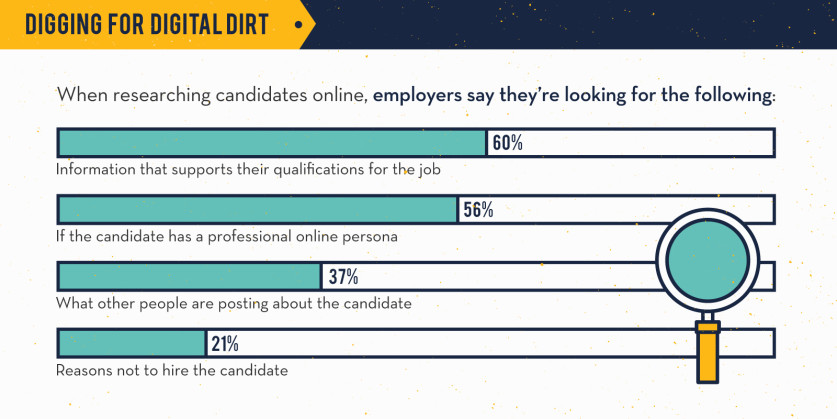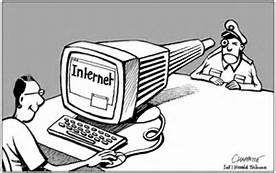
by Fronetics | Jan 2, 2020 | Blog, Current Events, Logistics, Marketing, Social Media, Supply Chain
Knowing how and when to respond to a social media crisis is crucial for reputation management and preventing future issues.
News travels at lightning speed thanks, in large part, to social media. With the ability to amplify news – both good and bad – you hear, almost daily, about brands battling a social media crisis. Look at Facebook, who is still managing the aftermath of the Cambridge Analytica scandal almost two years after the news broke.
When your company suffers from negative reviews on social media, it hurts. A single post can have a direct impact on your bottom line. That’s why it’s crucial for B2B brands to know how and when to respond to online reviews and comments. Here are four ways to help your company manage a social media crisis.
4 steps to managing a social media crisis
1. Establish policy
We recently wrote about the importance of a social media policy, and there’s never a better time to implement one than during a social media crisis (except for maybe before it happens). When you provide employees with guidelines on how to respond to negative feedback online, you minimize the risk of employees guessing the appropriate response. Because speed is critical in these situations, a social media policy allows your team to respond quickly and confidently.
2. Listen
You know customers are talking about your company, but is the tone a positive one? And if it’s not, how are you responding? Social listening gives you the opportunity to take a negative customer-service situation and not only correct the problem, but deescalate a situation from turning into a crisis.
Through consistent social listening, you’ll understand the difference between grumblings and a significant change in sentiment toward your brand. Though no company is perfect, a personalized response to negative comments on social media shows a genuine concern for your customers and an investment in customer satisfaction.
3. Engage
As we’ve said, time is of the essence. A short, initial response on social media is a must, but your brand needs to follow up with more in-depth messaging. Social media thrives on engagement, and responding to a crisis is no different.
Lauren Teague suggests, “Avoid getting pulled into a long discussion of what went wrong. Instead, try to move the conversation to a more personal channel, like private messaging. You could also offer a phone number, email address, or other means of communicating outside of social media.”
4. Learn
Deep breaths. Once you’ve survived a social media crisis, the experience isn’t over. Take the time to meet with your employees and examine what happened, what worked well, and what needs to change in the event another crisis occurs. Learning how to minimize the damage of a social media crisis will only benefit you when future issues arise.
Give your staff the opportunity to share their experience during the crisis. Insight from your different departments can help determine areas in your social media policy that need updating, including how to prevent similar crises in the future.
Has your company experienced a social media crisis? How did you put out the fire?
Related posts:


by Fronetics | Jan 27, 2016 | Blog, Leadership, Marketing, Social Media, Strategy
Should employers be monitoring or censoring employees’ social media?
 Censorship is always a hot-button issue, and, when combined with social media, things can heat up even more. The topic is debated in law school classrooms, at dinner parties, and in courtrooms. What should be shared and written on social media? Should companies censor what their employees post?
Censorship is always a hot-button issue, and, when combined with social media, things can heat up even more. The topic is debated in law school classrooms, at dinner parties, and in courtrooms. What should be shared and written on social media? Should companies censor what their employees post?
The waters still seem murky. Many companies don’t have policies around social media, but, with over 70% of online adults using Facebook, and the Internet-crazed Millennial generation now outnumbering Baby Boomers, they should look into putting some guidelines and policies into place.
Who’s Digging?
Many companies, up to 60%, now research candidates according to Career Builder. Up to 48% of companies who have researched candidates have found reasons not to hire them. According to the site, reasons range from provocative photos, references to drug or alcohol use, badmouthing a former employer or colleague, poor communication skills, and discriminatory comments.

Source: Career Builder
A New Generation
Although the retiring workforce does use the Internet (46% of those 65+, and 65% of those between ages 50-64), their numbers cannot compare to users in the younger, upcoming workforce (90% of those between 18-29).
The Millennial generation was born and raised in the digital age. Many of them have never heard of the Dewey Decimal System or know a life before cell phones. Their digital devices, and the Internet, have been their best way to research and connect. They are accustomed to throwing political views, photos, and personal experiences — good or bad — out into the cyber world. Many have already had the experience of poster’s regret, which might have taught them a lesson, but may also have blunted the idea of permanent mistakes. If one can delete a post and apologize, why not post away and worry later?
To Monitor or Not Monitor, That is the Question
Thinking carefully about what your expectations are of employees, and addressing those expectations in writing, is an important step to consider.
We assume that most employees know they shouldn’t post anything that damages the reputation of the company, its products, and employees, but it may be best not to assume. A case study in a recent Harvard Business Review provides a perfect example of what can happen if policies aren’t put into place.
In his Time piece, “Why Monitoring Employees’ Social Media is a Bad Idea,” author S. Kumar argues that while monitoring candidates might make sense, monitoring current employees breeds a suffocating and intrusive atmosphere:
“By allowing workers to live their personal lives without intrusion, smart businesses can make a powerful statement; namely, that they accept them for who they are, treasure their professional contributions to the company, and want them to be happy and fulfilled outside as well as inside the office. This, in turn, would inspire loyalty and boost productivity in the workforce, and make those companies more profitable.”
However you feel about the topic of monitoring, and even censoring, it’s important to be clear with employees about expectations. A general statement about employee behavior and representation of the company might be enough to instill deeper forethought when employees post, comment, and like.
Do you monitor your employees’ social media accounts? Do you have a policy in place that covers personal social media activity?




